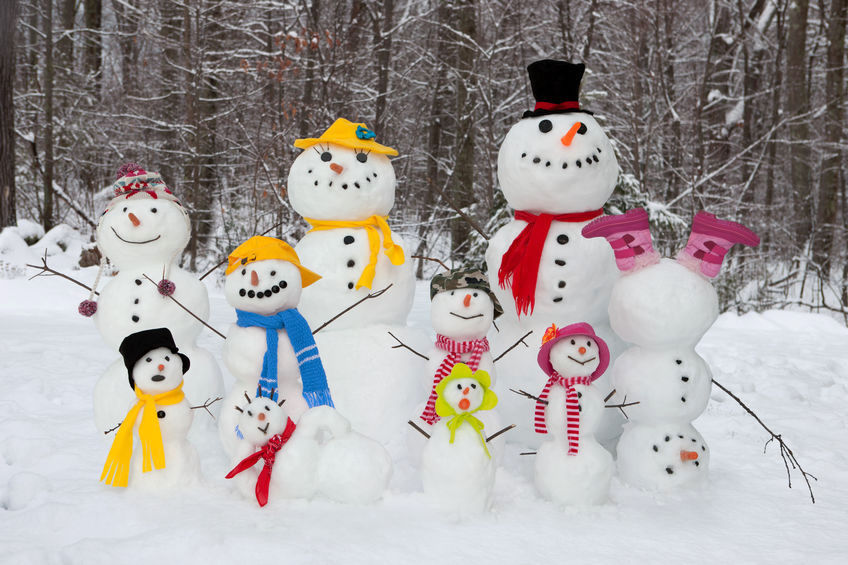
There’s no sugar-coating it: The holidays are here, and for young children, celebratory gatherings might be a new thing, even with family. It’s a strange time to be a young child… But it’s an even stranger time to be a parent of a young child.
Yes, this holiday season is so much better than last year, when we had no vaccine, lack of accessibility to tests—and in-person gatherings were pretty much out of the question. Something to be thankful for.
Yet the news cycle is flooded with reports and data on covid variants and their impacts, and it’s hard to tune out. This, coupled with the unknown of "what's next," and the devastating, hard-to-wrap-our-heads around milestone of over 800,000 pandemic lives lost in the US, keep the fears and worries as a constant in our "new normal".
So how do we do holidays in the new normal? With a perfect storm of new variants, cold weather, and holiday gatherings/travel, there’s a lot of risk factors taking the jolly out of the season. In many ways, so much of life is still up in the air.
Our children sense that, whether or not we say it.
Even very young children are extraordinarily astute when it comes to detecting emotion in the key adults in their world. Our stress, sadness, and happiness are as potent in the air as fresh-baked cookies (or burned ones). So it’s far more effective—and healthy—to recognize and address our emotions and concerns than pretend they don’t exist.
As we worry about covid news mixed in with the usual (and very unusual) holiday stress, our young children have their own big bag of concerns for this holiday season.
For many it is the first time they are a part of a holiday celebration or gathering. Who are these strangers, why are they here?, Can't I just stay in my jammies and watch TV with Mommy and Daddy or play with my new toys?
They’re also picking up on our stress about these gatherings, and the potential family and social dynamics that come along for the ride. Kids are spinning—what to think, how to react, and what to do with all these big emotions—because they are absorbing a lot without the tools to know how to manage it all.
First and foremost, it is important to manage our own stress, as kids are watching our actions, responses and reactions. So let' s take a deep breath and keep in mind the things we know to be calming and true.
Fact: We now know that if extended family members are vaccinated (boosted for the bonus), they’re pretty well protected.
Fact: We also know that it’s important for children’s development that they be in school, in person, for the foundational emotional intelligence skills they gain — not just the reading, ‘riting and ‘rithmatic.
Fact: Just like it is so important for children be in school for the foundational social skills they gain, engaging in social situations like holiday routines and family gatherings is also a part of developing key skills and being comfortable with people beyond their usual circle.
Fact: The more we can seize daily opportunities to model for and guide children in their emotional understanding, the more we can help them develop that important toolbox of self-regulation and empathy. The opportunities for emotional intelligence that happen in school—and in social situations, even amid holiday stress—cannot be dismissed.
Fact: And we know that we do our children’s mental health a great service when we expose them to the emotional intelligence that happens in community.
Just this morning, I had an electrician working on wiring in my home, and he was telling me about what a difference being in school makes for his three young children. His kindergartener in particular becomes very withdrawn when she leaves the house, essentially nonverbal, and has been this way since she began preschool—which unfortunately coincided with the pandemic’s beginning. In the course of a few months of being in-person, she’s made progress by leaps and bounds and most importantly, tells her parents she loves school.
Being part of face-to-face interactions, especially new faces, can bring out high emotions in young children, and this can be especially true with all that swirls about during this season. The holidays are always filled with emotional potholes for everyone but our ability to take those deep breaths, pivot and accept changing plans with ease, be creative in our approach to anything the holidays can deliver to our doorstep sets the stage for children to know they can do the same.
Keep in mind as you navigate this holiday season:
Remember as you wait in those long post office lines, juggle the texts and emails from family members, clean up the cookie batter from the ceiling, try to find rapid tests to have on hand...that the holidays only come once a year. Embrace the moment, model for and guide your kids toward understanding that no matter where the holidays may lead all the emotions that come along with those adventures are OK and provide great doors to walk through for those big conversations on feelings. Together you can work to find creative ways to celebrate, enjoy and be together -after all that is really what holidays are all about.
Wishing you and yours a happy and healthy season of joy and a new year filled with peace.
Be well!
These Posts on Family
Housman Institute, LLC
831 Beacon Street, Suite 407
Newton, MA 02459
info@housmaninstitute.org
(508)379-3012
Explore
Our Products
Legal
Connect
Contact
Join our Mailing List!
Subscribe to receive our newsletter, latest blogs, and ECSEL resources.
We respect and value your privacy.
No Comments Yet
Let us know what you think